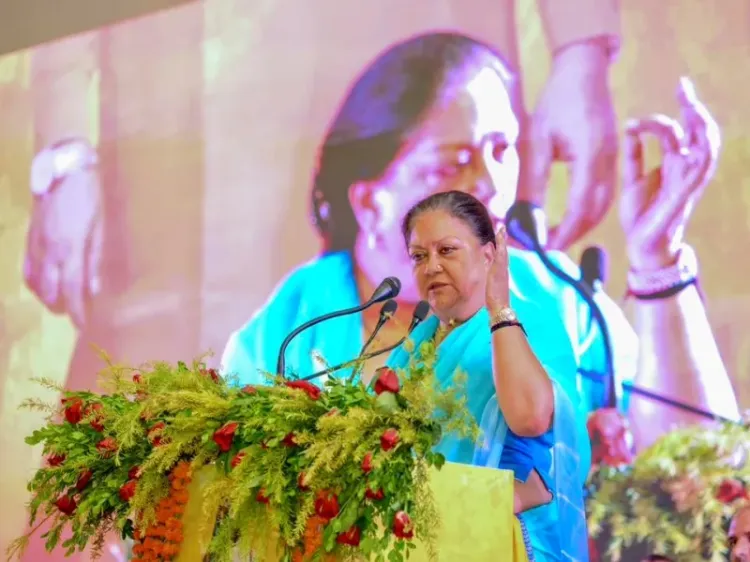Is Ahilyabai Holkar a True Embodiment of Women’s Power and Pride?

Synopsis
Key Takeaways
- Ahilyabai Holkar's reign marked significant contributions to society.
- She is a symbol of women's empowerment.
- Her efforts led to the restoration of important temples.
- The Nari Shakti Vandan Act reflects her enduring legacy.
- Women today draw inspiration from her life and leadership.
Jaipur, May 31 (NationPress) During a ceremony in Jaipur on Saturday to mark the 300th birth anniversary of Lokmata Ahilyabai Holkar, a remarkable personality in Indian history renowned for her visionary leadership and societal contributions, former Chief Minister of Rajasthan and esteemed BJP leader Vasundhara Raje offered a heartfelt homage to this legendary administrator, characterizing her as a genuine representation of women’s power and pride.
“Maharani Ahilyabai of the Holkar dynasty governed Malwa for 28 years and made significant contributions to the preservation of religion and the welfare of her people,” stated Raje.
The gathering included numerous senior leaders, such as BJP National President JP Nadda, Chief Minister Bhajanlal Sharma, former Chief Minister Vasundhara Raje, and Deputy Chief Minister Diya Kumari. Raje underscored Ahilyabai’s efforts in restoring a number of temples across India, including the Kashi Vishwanath Temple, which serves as a monument to her devotion and statesmanship.
She also highlighted the significant role of the Holkar and Scindia royal families in the Malwa-Maratha Sultanate, acknowledging their legacy of leadership and service.
Describing Ahilyabai as a source of inspiration for countless generations of women, Raje remarked: “Thanks to her inspiration, women today are thriving in every sphere—from governance to grassroots initiatives. Even as a queen, she lived among the people and dedicated herself to their service.”
She urged every woman to visit Ahilyabai’s wada (residence) to truly grasp her vision and humility.
Raje described the Nari Shakti Vandan Act introduced by the Central government as a fitting tribute to Ahilyabai’s legacy, reaffirming the government’s dedication to women’s representation and empowerment.
In a profound reflection on women’s resilience, Raje stated: “Women tread the same paths as men without expressing fatigue. They manage households, nurture children, cook, clean, and continuously strive to give their best—without ever asking for sympathy or rest.”







